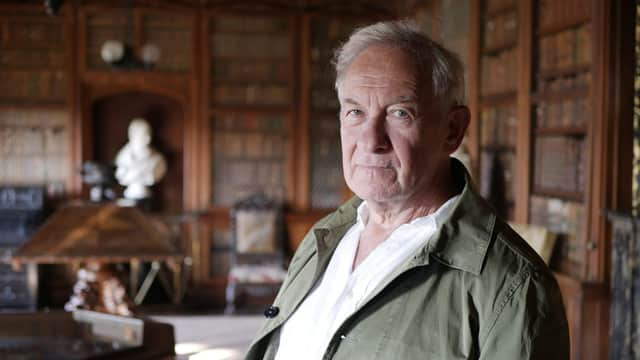Simon Schama looks at the ‘romantics and us’


When it was recently announced that Rule, Britannia! and Land of Hope and Glory would not be sung at the Last Night of the Proms, and would instead be performed in orchestral versions, it sparked outrage – followed by relief when the BBC reconsidered.
Although pundits questioned whether the initial decision was made because the lyrics were associated with colonialism, the BBC insisted there was a more practical reason behind it, saying: “The pandemic means a different Proms this year and one of the consequences, under Covid-19 restrictions, is we are not able to bring together massed voices. For that reason, we took the artistic decision not to sing Rule, Britannia! and Land of Hope and Glory in the Hall.”
Advertisement
Hide AdAdvertisement
Hide AdLuckily, in the end, the Beeb was able to find a way to make it happen. It’s a reminder of just what an important role music plays in stirring up feelings of patriotism – and makes the final episode of The Romantic and Us with Simon Schama particularly timely. It looks at how modern nationalism has its roots in the Romantic ideas of nature and homeland, and the movement’s embrace of native folklore and stories. But the historian finds that music has perhaps the strongest claim to generating the emotion of national belonging.
Schama discovers that this was noted by the 17th-century Swiss doctor Johannes Hofer, who was the first to diagnose a feeling he called nostalgia. He saw it as a malady and believed it was triggered by anything that reminded Swiss soldiers serving abroad of home. Folk stories, food and nursery rhymes could all do the trick, but music was particularly potent. The presenter suggests that Hoefer’s theories were reflected by the Romantics, whose ideas of national belonging were also influenced by nostalgia and a sense of loss. Schama then heads to Scotland to learn how Robert Burns, who grew up in Ayrshire in the 1770s, 60 years after the 1707 union with England, created a new poetry, rooted in Scottish dialect and life. With the help of singer-songwriter Eddi Reader, Schama discovers how Burns’ music continues to define what it means to be Scottish.
Schama visits Germany, where Napoleon’s invasion in the early 1800s kickstarted a ‘campaign of national belonging’, which reclaimed the roots of their culture, but was to have a dark, complicated legacy.
The historian’s travels also take him to Poland and Paris to show how a generation of Polish Romantic artists and musicians, in particular Frédéric Chopin, created a ‘Poland of the imagination’ in their art. Later, Chopin’s music would be banned by the Nazis. And to cap it all off, Schama visits the Last Night of the Proms, where he reflects on modern nationalism. He believes that as in previous centuries, it’s being driven by nostalgia and a fear that we are losing our identities in an globalised world, but does that mean the Romantics would also be waving the flags?
A message from the Editor:
Advertisement
Hide AdAdvertisement
Hide AdThank you for reading this story on our website. While I have your attention, I also have an important request to make of you.
In order for us to continue to provide high quality and trusted local news on this free-to-read site, I am asking you to also please purchase a copy of our newspaper whenever you are able to do so.
Our journalists are highly trained and our content is independently regulated by IPSO to some of the most rigorous standards in the world. But being your eyes and ears comes at a price. So we need your support more than ever to buy our newspapers during this crisis.
With the coronavirus lockdown having a major impact on many of our local valued advertisers - and consequently the advertising that we receive - we are more reliant than ever on you helping us to provide you with news and information by buying a copy of our newspaper when you can safely.
Advertisement
Hide AdAdvertisement
Hide AdYou can also enjoy unlimited access to the best news from across Northern Ireland and the UK by subscribing to newsletter.co.uk
With a digital subscription, you can read more than five articles, see fewer ads, enjoy faster load times, and get access to exclusive newsletters and content. Visit https://www.newsletter.co.uk/subscriptions now to sign up.
Thank you